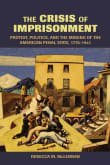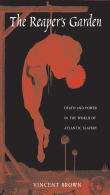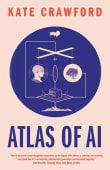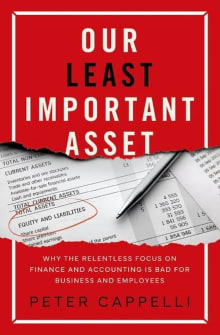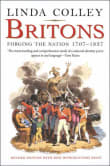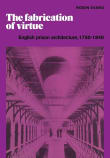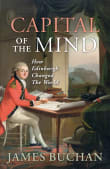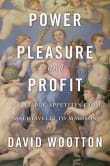Discipline and Punish

Book description
A brilliant work from the most influential philosopher since Sartre.
In this indispensable work, a brilliant thinker suggests that such vaunted reforms as the abolition of torture and the emergence of the modern penitentiary have merely shifted the focus of punishment from the prisoner's body to his soul.
- Coming soon!
Why read it?
4 authors picked Discipline and Punish as one of their favorite books. Why do they recommend it?

Though Foucault’s book appeared at almost the same moment as Ignatieff’s, Foucault painted a far darker image of early penitentiaries. He cast them not as places of reform but as instruments of disciplinary control, rendering inmates docile and amenable to the monastic repression and routine of schools and factories.
Foucault’s book taught me decades ago that history is crafted, not discovered, and that skilled chroniclers can weave very different plotlines from similar facts.
From George's list on profound books on the history of the penitentiary and of its hopes and disappointments.

I first read this book back in the 1980s when doing PhD fieldwork in China on the socialist transition. After reading this book, I not only changed my topic but, ultimately, the way I thought. I became interested in questions of power/knowledge, of ‘normalization’ through social control, of disciplinary power and the collective rather than the individual, and of systems of transformation between East and West.
Indeed, in my internal conversations with this work, I not only saw a radically different Chinese tradition of social control but also Marx’s privileging of labor and Bentham’s desire to ‘grind the rogues honest’…
From Michael's list on understanding Chinese communist policing.

This book has perhaps the best opening of any history book ever written. This is a detailed and gruesome description of the public torture and mutilation of Robert-François Damien in 1757.
The description is meant to shock, for it illustrates the difference between a modern attitude towards punishment and the idea of punishment that prevailed in the French ancien régime before the Revolution of 1789. Today we generally see punishment not as a means to display the state’s anger against those who defy its authority but rather as a means to improve society and even rehabilitate the offender.
This book…
From Nicholas' list on why the Enlightenment is the beginning of the modern world.
If you love Discipline and Punish...

I have always tended to see power as something that is imposed upon us. It is done to us. And, of course, you only need to glance at the Internet or a TV screen to see the truth of that.
But that can't be the extent of it. Power requires consent, which means it must also be at play even when it is not actively exercised.
Discipline and Punish is a work of history and philosophy which charts the evolution of punishment from a spectacle of cruelty in the middle ages, to the impersonal bureaucratic systems of the modern era.…
From Matt's list on non-fiction that turn their topics upside down.
If you love Discipline and Punish...
Want books like Discipline and Punish?
Our community of 12,000+ authors has personally recommended 100 books like Discipline and Punish.


